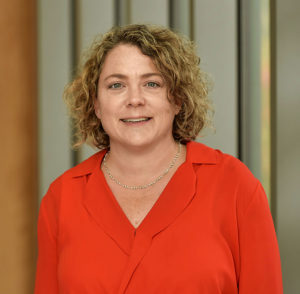Sara Donaldson
Assistant professor of education
- Bachelor’s degree in social work
- Master’s degree in elementary education from the University of New Hampshire
- Doctorate in education from Johns Hopkins University
 My previous job: Adjunct faculty and clinical supervisor in the Department of Education at Roger Williams University in Bristol, R.I.; (also currently adjunct faculty at Johns Hopkins University in Baltimore, Md., for the School of Education, online master’s STEM/mathematics leadership program)
My previous job: Adjunct faculty and clinical supervisor in the Department of Education at Roger Williams University in Bristol, R.I.; (also currently adjunct faculty at Johns Hopkins University in Baltimore, Md., for the School of Education, online master’s STEM/mathematics leadership program)
Why I became an educator and what led me to my field: “After beginning my college career as a physical therapy major, I was drawn back to the field of education, something that had been a childhood dream and goal. I have been an educator since completing my master’s degree in 1993. I spent the first half of my career teaching in elementary and middle school classrooms in urban, public schools. I loved the daily problem solving, task variety and relationship-building with students and families. After becoming a mother, I stepped out of the classroom and began work as a consultant supporting teachers’ ability to promote high-quality mathematics and STEM learning opportunities in their classrooms. This work led me to taking an adjunct position at Roger Williams University. I fell in love with working with pre-service teachers and, as a result, went back to school to earn my doctorate in education so I could make this my full-time work.”
My current research focus: “My current research revolves around developing structures and systems that promote critical colleagueship as a tool for enhancing individuals’ sense of belonging and efficacy in teaching and learning contexts. I am currently involved in two different research projects. One involves working with mathematics and STEM instructional leaders to help them create professional environments that promote high-quality, equitable learning opportunities in K–12 classrooms. The other is looking at how the structure and climate of online learning environments promote or impede graduate students’ sense of belonging in scholarly communities.”
Why I chose Wheaton: “I chose Wheaton for several reasons. I was drawn to the college’s emphasis on interdisciplinary connections and innovative instructional design. These are two aspects of how I have always developed learning opportunities for students, so I knew it would be a good fit for my work and ongoing development. I was also very impressed with the welcoming culture and atmosphere at Wheaton from the moment I walked on campus for my interview. Having worked as an adjunct faculty member and independent consultant for more than a decade I was looking for a work environment where I could develop professional relationships and become part of an active and stimulating community. Wheaton seems to be just that type of place.”
Most important lesson I learned in college: “The most important lesson I learned in college is that developing relationships with professors and other students will enhance your learning. As a student I was always very independent, rarely collaborating with my peers and only attending office hours when it was a requirement. Although I was a successful student, looking back I missed the opportunity to extend my learning by connecting with others. I used this ‘hindsight’ while working on my doctorate and as a result not only broadened my perspective of issues and ideas but also became involved in multiple research and curriculum design projects that helped launch my academic career.”
What I want every student to learn: “I want every student to learn that mistakes and struggles are what drive learning and so they should be brought to the forefront, shared with others, and used to collaboratively move thinking and learning forward. Failures are what drive progress at both the micro and macro levels.”
What few people know about me: “Few people know that weeding is one of my favorite meditative practices. After a stressful day or when I’m struggling with a problematic situation, I find it very therapeutic to weed my gardens. Yanking invasive plants out of the ground and seeing the immediate positive results is strangely rewarding and satisfying.”
Return to main story and read about other new tenure-track faculty.
